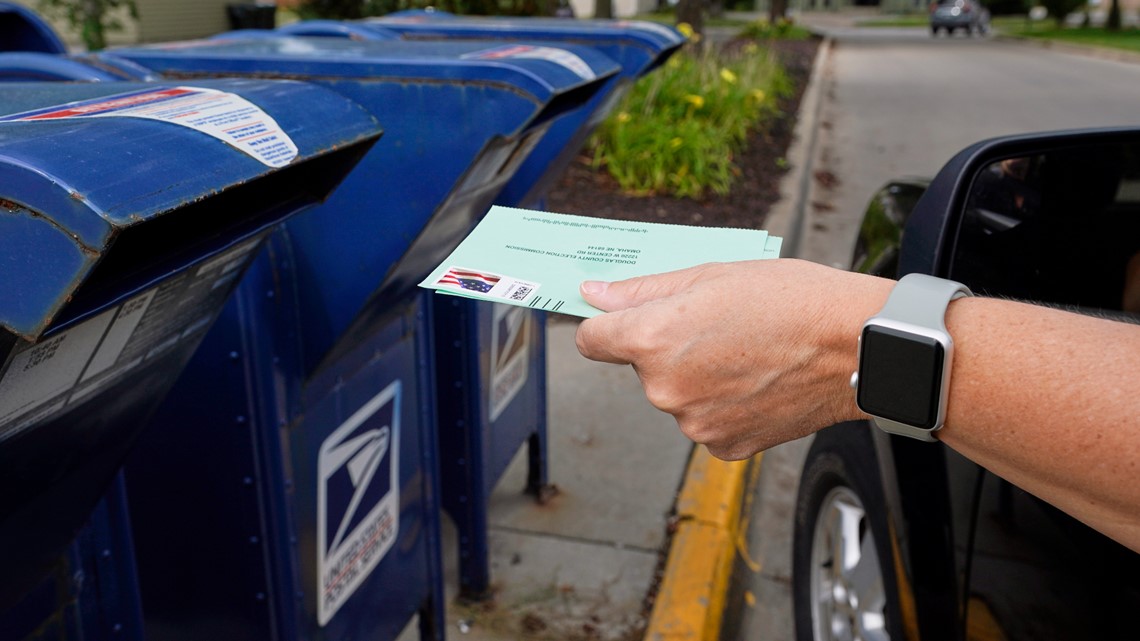DENVER — As Congress balks, well-funded nonprofits are donating hundreds of millions of dollars to help state and local officials run elections during the pandemic — a sudden infusion of private cash in what was once considered a core government function.
Facebook founder Mark Zuckerberg and his wife, Priscilla Chan, earlier this month announced they will donate $300 million to two nonpartisan nonprofits. The groups, the Center for Tech and Civic Life and Center for Election Innovation and Research, will funnel the money to local officials working “to ensure that everyone can vote and every vote can be counted," Zuckerberg said in announcing the donation.
The Center for Tech and Civic Life had already doled out more than $20 million from other donors — money that allowed the city of Philadelphia to double its election budget and quadruple its mail-ballot-processing capacity. In Milwaukee, its contribution is helping recruit as many as 1,000 new poll workers. In Fulton County, Georgia, the cash will help keep open more polling places after a June primary plagued by last-minute closures of polling places.
The nonprofits' involvement was welcomed by election officials who have been pleading with state and federal lawmakers for help paying for a raft of new equipment, protective gear and staff needed to adjust for the surge of mail-in voting expected this year. Congress sent money in March, largely to assist with primary elections. Republicans have blocked Democratic attempts to allocate more.
The direct infusion of millions of dollars marks a new level in private funding for a core public responsibility. The cash comes with a new set of questions about donor transparency, motivations and the influence of groups and figures that are not democratically accountable.
“This is not Plan A,” said David Becker, head of the Center for Election Innovation and Research, which received $50 million from Zuckerberg and Chan. However, Becker said his group, which until this year normally raised only a few hundred thousand a year, was trying to respond to what he considered an emergency caused by the pandemic.
With the election nearing, “failure is not an option,” he said.
Charitable institutions have long played supportive roles in elections by suggesting best procedures or donating space for polling places. This year that activity has picked up dramatically. Companies like Microsoft and Target have announced they'll give paid leave to employees who work the polls. Basketball teams have promised to turn sports arenas into polling centers at no cost.
But the amount of money and direct payments to public agencies that run elections mark a dramatic new level of mobilization. Election advocates say it was necessitated by Congress' failure to step in.
The CARES Act, passed in late March, allocated $400 million to election agencies to help update voting systems. The Brennan Center for Justice, a voting rights advocacy group, estimated it could cost $4 billion to prepare the election offices across the country.
House Democrats in May approved a second coronavirus relief bill that included an additional $3.6 billion, but Senate Republicans didn’t act on the measure. Instead, last week they proposed their own “skinny” bill that did not have any election money and that did not pass the Senate.
“Congress allocated $60 billion to the airlines and only $400 million to thousands of election offices across 50 states,” said Amber McReynolds, whose nonprofit Vote from Home hopes to begin distributing small grants to help local offices pay for ballot drop boxes and electronic tracking of mail ballots.


The Chicago-based Center for Tech and Civic Life began doling out grants this summer. The organization was founded in 2012 by former staffers at the Democratic group The New Organizing Institute. But its leadership is now bipartisan — its board includes Pam Anderson, a Republican former election administrator in suburban Denver. The group says its stated mission is using technology to modernize voting.
Federal records show it has typically raised about $1 million annually before this year. But donations have been flowing in as concern mounts over the ability of election officials to handle November. The Center gave $6.2 million to Wisconsin’s five largest cities, $10 million to Philadelphia, and $6 million to Fulton County, which includes Atlanta. Zuckerberg and Chan then contributed an additional $250 million.
The CTCL declined to disclose its other donors for the year or itemize all its contributions to local offices.
The group says the money will go toward recruiting poll workers and implementing drive-up voting sites, while the money to the CEIR, the second, unrelated nonprofit, will go to public information campaigns explaining mail balloting procedures and logistics on pandemic voting.
Anderson, who is also on the board of CEIR, said nobody thinks the situation is ideal. “I hope it leads to a broader conversation about funding election administration — if we want it, let's fund it,” she said.
Becker, who expects to have his share of the grant distributed as soon as the end of the month, said the money will be critical in ensuring the public has confidence in the election. But, he noted, it comes too late for most election offices to make major changes, like buying expensive mail-sorting machines or updating voting systems.
“What they could have done with billions in June is very different than what they can do now,” Becker said. “Running an efficient election should be something government invests in.”
The donation from Zuckerberg, who made his fortune creating a social media behemoth that is a center of false claims about the election and voting, has frustrated some who see it as a bid for good public relations.
“When you're the billionaire CEO of the biggest platform for misinformation in the world, a donation in the final weeks of the election is too little, too late,” said Tara McGowan, a Democratic digital strategist.
Conservatives note the Democratic origins of CTCL and that its donations have predominantly been in areas where Democrats depend on votes. The group has announced an upcoming series of grants to rural areas but hasn't provided specifics.
“I cannot believe people of such partisanship will put their partisanship aside while taking hundreds of millions of dollars and distributing it to election offices,” said Scott Walter, head of the conservative Capital Research Center, which monitors nonprofits.
Still, Walter acknowledged, conservative-leaning nonprofits — and the GOP Senate — have not stepped in to help elections officials.
“Honestly, I wish the right would do it, not only so the election would be more balanced but so we could have an honest debate about whether (charities) should do this,” Walter said.

